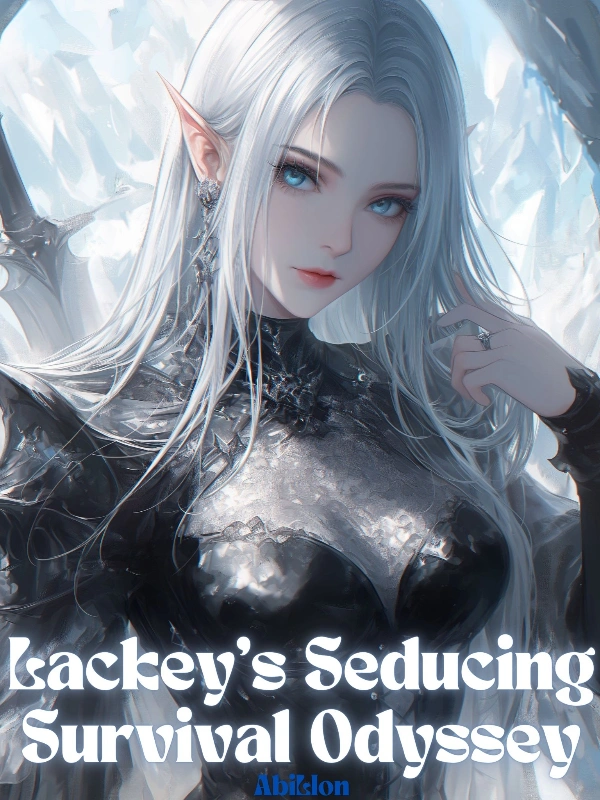Chapter 77: For What Do We Fight? (7)
Translated by Vine | Proofread by Lust
For the latest updates, visit: ProNovels.com
Join our Discord for release updates: https://discord.gg/Eh2ayfR4FB
< World War II – For What Do We Fight? (7) >
January 16, 1940
Budapest, Hungary
While waiting for a response from Berlin after my meeting with Horthy, I strolled through the streets of Budapest.
Nem, nem, soha! (No, no, never!)
The slogan, written in Hungarian, expressing their refusal to forget the injustices of World War I, was scrawled on walls throughout the city.
The Hungarians felt that they had borne the brunt of the war, despite being dragged into it as part of the Austro-Hungarian Empire.
They had lost two-thirds of their territory after the war, including Transylvania, a region with a significant Hungarian population, despite the supposed principle of self-determination.
It was one of the harshest punishments imposed on any defeated nation, and the desire to reclaim their lost territories and reunite with their countrymen wasn’t limited to Miklós Horthy.
Hungary, like Germany, was a nation consumed by resentment and a sense of loss in the interwar period, and the Hungarian army had been one of the most active participants in World War II in the original timeline.
“Welcome, State Secretary. Thank you for accepting my invitation.”
I was greeted warmly by István Horthy, the Regent’s son.
For reasons unknown, he had taken a liking to me and invited me to his home after our first meeting.
“Thank you for inviting me.”
“The honor is all mine. Haha.”
The younger Horthy, a few years older than me, seemed genuinely pleased to see me.
“I have been following your career with great interest, State Secretary. You played a crucial role in removing the Nazis from Germany. I’m delighted to finally meet you in person.”
“I’m surprised that the Regent’s son would be interested in me.”
While Hungary had been part of the Axis powers, Regent Horthy was a conservative authoritarian with anti-fascist leanings. It seemed his son shared his dislike of the Nazis.
Unsure of his intentions, I glanced around the room and noticed a framed photograph of him with a young woman.
“Is this your wife?”
“We’re getting married this year. Haha.”
“Congratulations.”
Perhaps my expression softened at the mention of marriage, as the younger Horthy smiled back.
“She’s a wonderful woman. I hope you find someone like that as well, State Secretary.”
I had already found someone, but I simply smiled.
“While you may not have realized it from our meeting yesterday, my father holds you in high regard. We may be on opposing sides due to national interests, but I hope you won’t hold it against us.”
“I am merely a temporary member of the wartime cabinet. I don’t deserve such praise from a head of state.”
The younger Horthy stared at me in surprise.
“Is that modesty, or do you truly believe that?”
“I’m not sure…”
“You’re a famous man, State Secretary. A very famous man. While you may be just a State Secretary due to your youth, many people in our country, while they may not know the names of your ministers or generals, know your name and your speeches. Some even consider you to be the true leader of Germany.”
I wasn’t sure if that was a good thing or a bad thing.
“And everyone is wondering if you and your father, with the support of the German people, will become Germany’s new rulers.”
New rulers. He avoided the word “dictators,” perhaps out of consideration for his father’s position.
“We’ll have to wait for the elections in Germany.”
“Elections? Are you serious? I don’t understand. You’re the Chancellor. Why not simply continue in that role? It’s been sanctioned by the Emperor, and the German people are unlikely to object.”
He observed my expression and smiled.
“Don’t misunderstand me. I’ve lived in America. I understand democracy.”
He had lived in America as well… It reminded me of the Crown Prince.
“But even if you and your father continued as Chancellor, those so-called democrats wouldn’t be able to remove you. Your achievements and popularity are too high. In fact, the people would be anxious if you relinquished power.”
“Why do you think so?”
“People fear what they don’t understand. Let’s say you held elections and stepped down. Do you think you would have no influence? You’re well-known in the military, among the people, and even in diplomatic circles.”
He smiled broadly and added,
“You’re a young, capable soldier, a diplomat, and a prominent politician. And you’re simply going to step down after the national emergency and leave everything to the elections? While you may speak of restoring democracy, everyone wonders about your true intentions. It’s both surprising and admirable that you seem to be sincere.”
He looked at me intently, then added, “But there are those who see you as a threat. If I were in your position, I would never relinquish power and return to being an ordinary citizen. Who would believe that you have no desire for power? They won’t feel safe unless they co-opt you or neutralize you completely.”
His words, spoken with such certainty, gave me a headache.
I hadn’t sought power, but here I was.
Perhaps it was because I had focused solely on removing Hitler and restoring Germany to normalcy.
As a modern man transported to the interwar period, my initial goals had been clear: remove Hitler and the Nazis, and prevent another dictatorship in Germany.
However, I hadn’t considered the consequences, and now, with Hitler gone, I was facing a rapidly changing world.
“You’re a fascinating man, State Secretary. Frankly, I’m quite impressed. But being a good person and being a good leader are two different things. Gladstone was a respected man, but was he a good leader for Britain?”
William Ewart Gladstone, the British Prime Minister, known as the “Grand Old Man.”
He had been a proponent of moral politics, seeking to resolve international disputes through diplomacy and arbitration, but he had ultimately resigned, unable to reconcile his ideals with the realities of the imperialist era.
“In times like these, we need realpolitik, and we need a strong leader. I don’t understand your lack of ambition, but you need to be more pragmatic. What good are morals and democracy when Germany needs you?”
I smiled wryly.
“Do you think I am a proponent of moral politics?”
“Frankly, yes. That is my and my father’s assessment.”
Moral politics. Both father and son saw me that way.
But I was also the one who had orchestrated Ribbentrop’s assassination, even if it meant staining my lover’s hands with blood, and instigated a civil war, knowing full well the cost in German lives.
While I believed in liberating Czechoslovakia, I was waiting for the right moment, despite the moral imperative.
As a modern man in this era, I struggled with my conscience and constantly questioned my actions, but I had never stopped moving forward.
“No, I am a realist. We simply have different perspectives.”
The reason I prioritized diplomacy, appearing to be motivated by moral principles, and persuading our government to adopt my views, was simple.
Enjoying the translation? Stay updated with the latest chapters at ProNovels.com.
Germany was in a precarious position, facing a potential French intervention, and I was aware of the existence of the United States, a nation with unimaginable power in this era.
If we provoked France into joining the war, or antagonized the United States, jeopardizing our vital trade relationship, what good would an alliance with Hungary do?
And what had happened to the Axis powers in the original timeline, who had disregarded diplomacy and started a war to reclaim their “rightful” territories?
They had lost everything they had gained, and their nations had been devastated, with countless lives lost.
“While Germany and Hungary were victims of the last war, we were also perpetrators. Being a victim doesn’t give us the right to become aggressors. We live in the same world as the so-called ‘victors,’ and to them, their tears are more precious than our blood.”
While the victors of World War I had unjustly blamed Germany and its allies for the war, and their actions were harsh and unfair,
It was the nations who believed they were innocent victims and justified their wars of aggression that had caused World War II.
Could any nation involved in a world war truly claim to be innocent?
Lost territories that rightfully belonged to them? I understood their desire to reclaim them. Ignoring the nationalistic fervor of their people would be a mistake.
But what about the cost of another war, waged to avenge their past losses? What about the new victims? How much blood was it acceptable to shed to reclaim lost territories?
And what if they lost again? What would they tell their people then?
That they had tried their best, but it wasn’t enough? That wouldn’t bring back the dead or rebuild their shattered nations.
István Horthy looked uncomfortable.
“We were also perpetrators? We simply did our duty as part of the Austro-Hungarian Empire! Are you saying we should simply accept the unjust losses our people suffered? Our desire to reclaim what we’ve lost is not just my father’s or mine, but the will of the entire Hungarian nation. As politicians, we must respond to that.”
Their resentment was understandable, and their desire for retribution was justified. But Germany had thought the same way, and it had led to World War II.
While Hitler and the Nazis were particularly monstrous, even without them, the outcome wouldn’t have been much different.
The Axis powers would have been held accountable for the bloodshed. As they had been in the original timeline.
“As politicians, we mustn’t lose sight of the bigger picture. While we can’t ignore the will of the people, is it truly realistic, let alone moral, to start a war based solely on nationalistic fervor, only to lead our nation to another defeat? What is realpolitik?”
István Horthy remained silent.
The answer to Horthy’s question, which I had been unable to articulate earlier, now came to me.
“His Serene Highness asked if prioritizing moral principles while our people are dying is truly moral. Then I ask you, is it truly realpolitik to lead a nation to war based solely on the desire to reclaim lost territories?”
Was it enough to simply avoid the Holocaust and other overt atrocities to be considered a normal nation?
A nation that gambled with the lives of its people based solely on the desire for revenge and territorial gains… that was the Axis powers in the original timeline.
“War? We will fight if necessary. I’m not foolish enough to preach world peace while we’re under attack. But is it truly the right way to honor the sacrifices of our people to blindly pursue war and revenge?”
It wasn’t. In fact, I was furious. We were under attack, and our people were dying.
I had instigated a civil war to remove the Nazis and prevent World War II, and yet, here we were, fighting another war, seemingly caught in some sort of historical inertia.
But my personal feelings were irrelevant. If Germany lost control now, it would be a repeat of World War II.
“I’m not prioritizing morals over the lives of German people. I’m trying to minimize our losses, even if it means appearing to be motivated by moral principles.”
While I wanted to prevent the German army from committing atrocities and war crimes in the name of revenge, I didn’t believe that a democratic Germany, fighting a defensive war, would be an innocent and righteous nation.
Even if I wished for it, it was, as Claudia had said, impossible. How many truly “moral” nations were there, even in the 21st century? Were there any?
Many of our generals had been complicit in the Nazi regime’s war crimes. We would be invading enemy territory, and civilian casualties were inevitable.
While I had my own moral compass, and I struggled with the ethical dilemmas of war, I wasn’t a naive idealist.
Even my current goal, removing Hitler and restoring Germany to normalcy, was proving to be a monumental task, filled with trials and errors.
Moral politics. Morality was important, and it should be upheld whenever possible. I believed that in this era, on the cusp of modernity, it would eventually become Germany’s strength.
However, clinging to moral principles at the expense of our people’s well-being, as Horthy had said, wouldn’t be moral. Personal morality and national interest didn’t always align.
I knew I would have to make difficult choices that would compromise my own moral code, but I hoped that the Germany we created would be better than the one in the original timeline.
“I have made my decision based on what I believe to be in Germany’s best interest. While I’m not certain that my choices are always right, I have never betrayed the German people.”
While I wouldn’t pursue the extermination of Poland and Italy, as Hitler had, we would demand retribution for the blood shed by the German people in this war. Whether it was Danzig or something else.
And to achieve that, we needed to appear to be the moral party. Was I being moral by calculating and acting this way? Probably not.
The reason I urged the German people to be vigilant, to be wary of Germany’s, and even my own, potential for aggression, wasn’t because I believed Germany had to be a moral and righteous nation.
It was because I believed that was the only way for Germany to avoid the horrors of Nazism and World War II, to become a normal nation without repeating the mistakes of the past.
I looked at István Horthy, who was now silent, and asked, “What about the Kingdom of Hungary? Do you truly believe that this war is worth risking the lives of your people? Or are you simply gambling on what appears to be an opportunity?”
Hungary’s true goal wasn’t Slovakia, but Transylvania, the heartland of the Hungarian people.
Their initial willingness to join the war suggested that Poland had promised them Transylvania in some form.
But now, with Poland struggling, they had approached us, using Slovakia as a pretext, hoping to secure our support in reclaiming Transylvania.
However, with the Soviet Union looming in the east, and with our focus on maintaining our diplomatic standing, we couldn’t afford to antagonize Romania.
While Poland might have received support from Romania, as they claimed, I didn’t believe Romania had offered Hungary any guarantees.
The question was, did Hungary have the military strength to threaten us? Their rearmament had begun in 1938 with the Bled Agreement.
But even Germany, after four years of rearmament, had struggled against Poland. What about Hungary?
Their claim that we had to choose between ceding Slovakia and aiding their invasion of Romania was absurd.
If they were truly confident of their military strength, they wouldn’t have needed to negotiate with us secretly, without Poland’s knowledge.
I looked at István Horthy, his face grim, and smiled.
“Have you learned enough about me?”
< World War II – For What Do We Fight? (7) > End





















